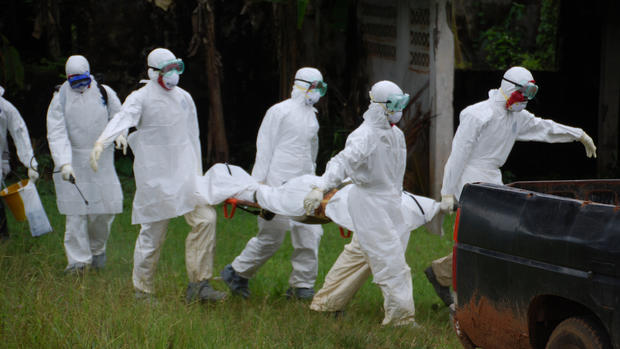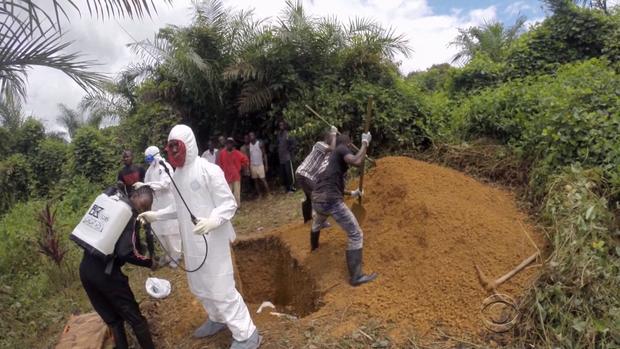Liberian burial teams battle infection -- and cultural taboos
KAKATA, Liberia -- Life was hard enough in Kakata before Ebola. Now it has one of the highest infection rates in the country.
It's feared a woman's brother died from Ebola. But she's not being allowed anywhere close to the body.
The villagers, too, can only say their farewells, from a distance.
Government worker George Woryounwon briefs the burial team he's brought to the village to help remove the body.
"People touch the body while they're crying," said Woryounwon. "They cook, they eat and they sleep together for one or two weeks before burial. And now we are saying don't allow the body to be there for 24 hours," said Woryounwon.
The new rules don't go over well. Sometimes villagers hide bodies or bury them in secret to avoid the government.
Even now, this man's widow emphatically denies her husband died of Ebola despite the fact that Ebola claimed the lives of both his mother and sister.
After a long walk into the bush, the burial team begins suiting up, following strict new guidelines.
Freda Forkpah was studying to be a nurse before the outbreak, but she jumped at a chance of a job. She makes $15 a day. The team is helped by funding from the group Global Communities.
"I am proud to be part of the burial team," says Forkpah. "Because, I was the first female to join the team."
It is one of the most dangerous jobs in the world. Asked if she is afraid, Forkpah said: "No I am not afraid."
The team discovers that someone has covered the body with a blanket, which also means someone may have touched it and could spread the disease further.
But nobody will own up.
The body is unceremoniously packed away in a double-layered protective bag.
The team sprays chlorine as they move back to the village, stopping several times along the. The body is just too heavy.
Devastated villagers are only given only a glimpse of the shrouded body, then a ruthlessly efficient burial. Every piece of contaminated clothing is thrown in with the corpse.
But inside that chlorinated body bag lies a man who was loved. Felicifa Chepus, who delivered coal for the villagers' stoves, was just 22 years old.
While cremation remains the safest way to manage the bodies of Ebola victims, it's being met with strong resistance. For villagers it goes completely against ancient burial traditions of touching and washing the dead. And that's why it's proving so hard to stop the spread of Ebola in rural areas

